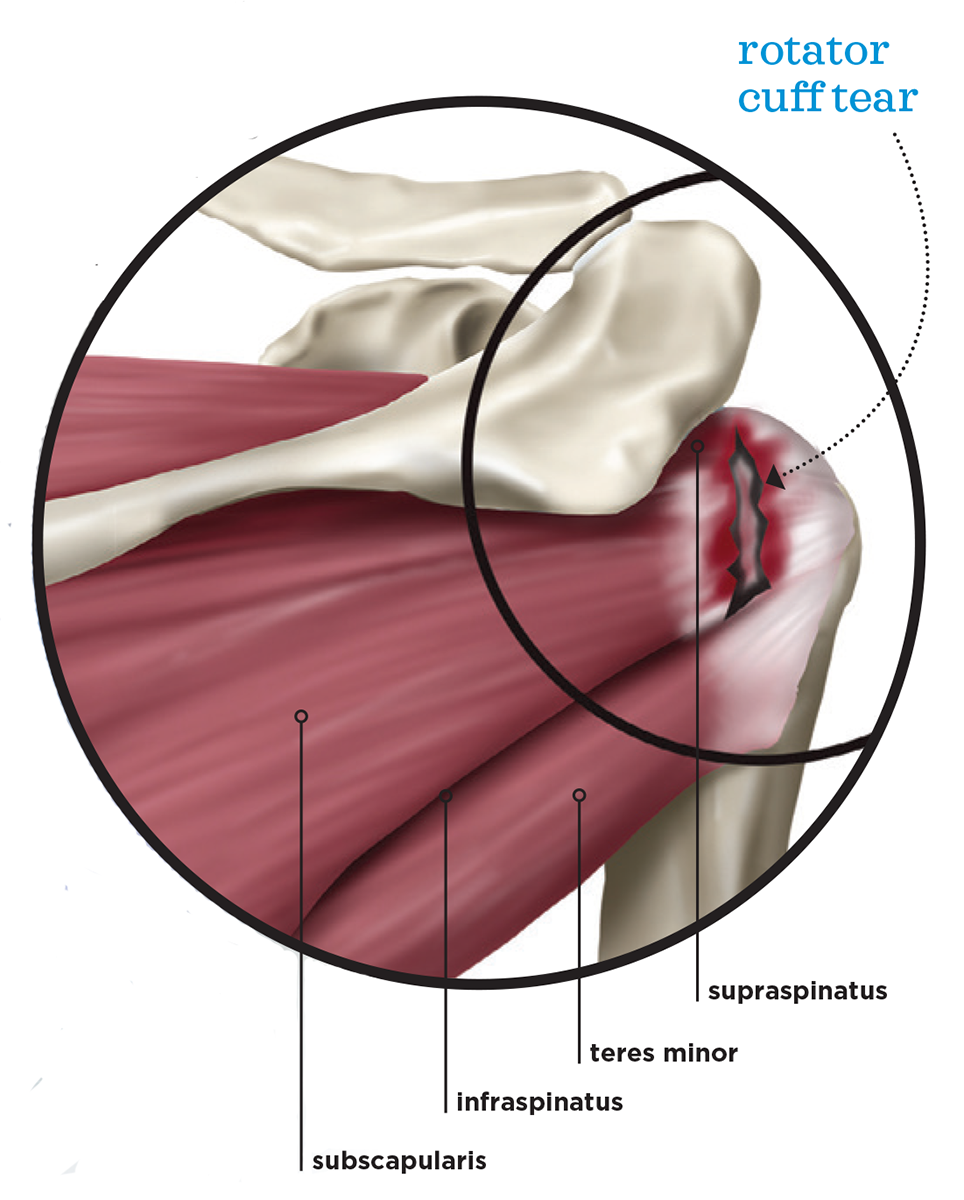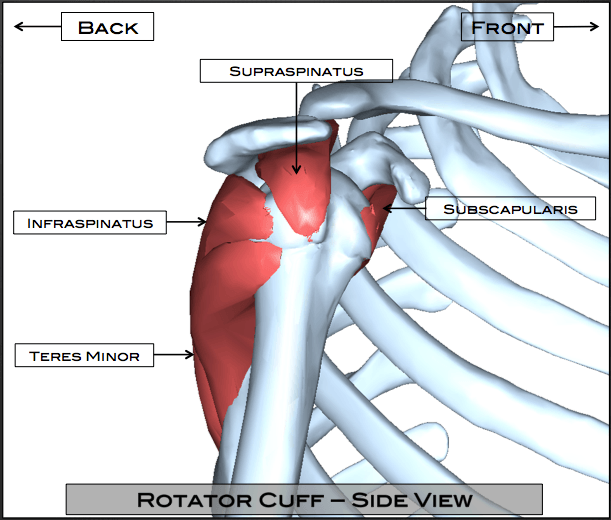Anatomy The Rotator Cuff Biology Diagrams The Rotator Cuff (RC) is a common name for the group of 4 distinct muscles and their tendons, which provide strength and stability during motion to the shoulder complex. They are also referred to as the SITS muscle, with reference to the first letter of their names ( Supraspinatus , Infraspinatus , Teres minor , and Subscapularis , respectively). The rotator cuff (SITS muscles) is a group of muscles and their tendons that act to stabilize the human shoulder and allow for its extensive range of motion. Of the seven scapulohumeral muscles, four make up the rotator cuff. The four muscles are: supraspinatus muscle; infraspinatus muscle; teres minor muscle;

Rotator Cuff Muscles Anatomy) A helpful mnemonic to remember these muscles is "SITS". The glenohumeral joint is a ball and socket joint and comprises a large spherical humeral head and a small glenoid cavity. This anatomy makes the joint highly mobile, however, really unstable. Stabilization in the shoulder is provided collectively by the non

Rotator Cuff Biology Diagrams
Learn about the four muscles of the rotator cuff, their origins, insertions, innervations and roles in shoulder movements and stability. Find out the common pathologies and clinical aspects of the rotator cuff, such as impingement syndrome and tears.

Learn about the rotator cuff, a group of four muscles and tendons that surround the shoulder joint and enable various movements. Find out how the rotator cuff can be injured, compressed, or damaged, and what are the common symptoms and treatments.

Structure and function of the rotator cuff Biology Diagrams
Learn about the rotator cuff, a group of muscles and tendons that surrounds your shoulder joint and helps you move and stabilize your arm. Find out the common causes, symptoms and treatments of rotator cuff injuries. Learn about the four muscles of the rotator cuff, their origins, insertions, and actions, as well as their vascular and nerve supply. The rotator cuff is a group of muscles that stabilize the shoulder joint and enable smooth motion of the arm. Learn about the rotator cuff, a group of muscles and tendons that keep your shoulder stable and help you move your arm. Find out what causes rotator cuff injuries, how to diagnose and treat them, and how to prevent them.

Learn about the four muscles that make up the rotator cuff, a group of tendons that stabilize and move your shoulder joint. Find out the common injuries, symptoms, and treatments of rotator cuff problems.
